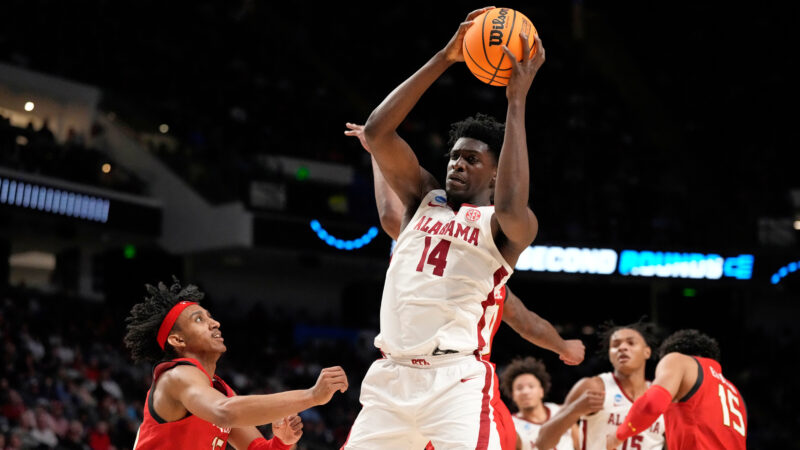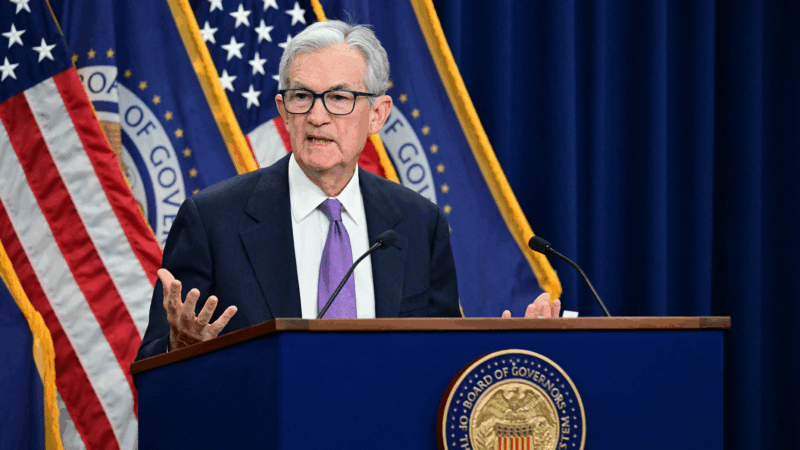Brazil’s Lula warns of 50% tariffs on U.S. goods after Trump trade threat
RIO DE JANEIRO, Brazil — Brazilian President Luiz Inácio Lula da Silva says the U.S. must respect his country — and he’s ready to impose retaliatory tariffs if President Donald Trump goes ahead with a threat to slap a 50% tax on Brazilian imports starting in Aug. 1.
Trump posted the warning in a letter on social media, citing what he called a “witch hunt” against Brazil’s former far-right president Jair Bolsonaro, who is currently on trial for trying to overturn the 2022 election. Trump demanded the case be dropped, calling Bolsonaro “a Highly Respected Leader throughout the World.”
Lula said in an interview posted to his offical media account that at first he thought the letter from Trump was a fake.
“The Brazilian people must be respected. Brazilian justice must be respected.” Lula said, “We are a great, sovereign country with a historic tradition of diplomacy with all nations. Brazil will adopt the necessary measures to protect its people and its companies.”
The U.S. currently runs a trade surplus with Brazil — unlike many of the more than 20 countries that also received tariff warning letters this week. Last year alone, the U.S. exported more to Brazil than it imported. That’s why Lula called Trump’s claim that the trade relationship was “far from reciprocal” simply inaccurate.
While Trump has issued similar tariff threats to other countries, experts say this case is different. Georgetown trade policy professor Marc Busch says using tariffs as political pressure over another country’s internal judicial proceedings is highly provocative.
“Brazil taking this seriously may escalate in a dramatic and qualitatively different way than Trump has seen with other trade partners,” Busch said.

Lula says his government is exploring retaliation, though Brazil’s Finance Minister Fernando Haddad has tried to dial back tensions. In an interview, he said any dispute “can and must be overcome through diplomacy.”
The last few days has seen an escalation in rhetoric between the two leaders. Earlier in the week Brazil hosted a summit of the BRICS nations of emerging economies — bringing together founding members Brazil, Russia, India, China, and South Africa, along with newcomers like Egypt and Indonesia. There, in a pointed response to Trump’s tariff threats against BRICS countries, Lula pushed back. “We don’t want an emperor — we are sovereign nations,” he said.
The tariff threats have rattled Brazil’s exporters. Gláucio de Castro, a coffee farmer and head of a major growers federation in Minas Gerais, said that while he supports Trump’s politics, this move would hurt Brazil’s economy.
“I agree with Trump’s thinking,” he said. “But it’s not right to hurt our country commercially — it’s really harmful to us. Brazil is the world’s largest exporter of coffee, and a steep tariff could spike prices for U.S. consumers. The country also exports aircraft, steel, and oil to the U.S., meaning the fallout could stretch across multiple industries.
Judge rules 7-foot center Charles Bediako is no longer eligible to play for Alabama
Bediako was playing under a temporary restraining order that allowed the former NBA G League player to join Alabama in the middle of the season despite questions regarding his collegiate eligibility.
American Ben Ogden wins silver, breaking 50 year medal drought for U.S. men’s cross-country skiing
Ben Ogden of Vermont skied powerfully, finishing just behind Johannes Hoesflot Klaebo of Norway. It was the first Olympic medal for a U.S. men's cross-country skier since 1976.
An ape, a tea party — and the ability to imagine
The ability to imagine — to play pretend — has long been thought to be unique to humans. A new study suggests one of our closest living relatives can do it too.
How much power does the Fed chair really have?
On paper, the Fed chair is just one vote among many. In practice, the job carries far more influence. We analyze what gives the Fed chair power.
In a world built for sitting, here’s how to stay active — even when stuck inside
In the office, classroom and living room, working and relaxing mean sitting still. Our bodies evolved without chairs. Here are some tips for getting out of your seat and moving — even on cold days.
This complex brain network may explain many of Parkinson’s stranger symptoms
Parkinson's disease appears to disrupt a brain network involved in everything from movement to memory.








